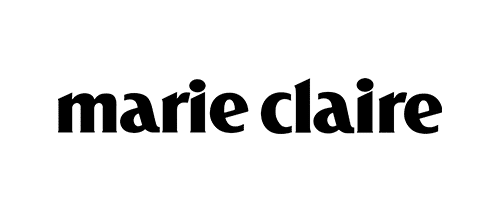When it comes to taking care of our health, knowledge is power. The more we know about our own bodies and our genetics, the better chance we’ll have of making proactive and informed decisions about what’s right for us.
On a mission to revolutionise access to genetic testing, Eugene Labs is a digital health service that’s changing the way everyday Australians access healthcare. Using clinical grade at-home genetic tests and digital genetic counselling, Eugene offers a new kind of healthcare experience that is affordable, emotionally supportive and delivered in a culturally sensitive environment.
Along with her co-founder Kunal Kalro, Zoë Milgrom (Eugene’s Founder and Chief Clinical Officer) is passionate about helping people have a positive relationship with their genetic status.
We sat down with Zoë to find out more about how Eugene is disrupting the healthcare industry, what challenges women face when making informed health decisions and her advice for other women looking to break into the health industry and launch their own business.
Can you give us a quick introduction to yourself and your role at Eugene Labs?
“I’m Zoë Milgrom. Prior to co-founding Eugene Labs, I was a genetic counsellor. Most people have never heard of genetic counsellors. For context, genetic counsellors are allied health professionals who provide scientific and psychosocial support to people as part of investigating or exploring the possible genetic aspects of disease.
For a little over 10 years, I worked in the public and private healthcare sectors as a genetic counsellor. I worked with people at all stages of life from planning a pregnancy, to managing risks or abnormalities during pregnancy, to supporting the diagnosis of a child born with an intellectual or developmental disability, to identifying risks that may affect their own health. That role was incredibly humbling and challenging because I was always supporting people during times of crisis.
In most cases, genetic conditions impact a person’s life expectancy and prognosis and quality of life and in the past there was very little we could do to change the outcomes for people. So supporting people going through this experience was emotionally and professionally challenging.
Genetic technologies have evolved so much in the last 15 years. When I used to work in public hospitals, we would only see about 2 to 3% of the population, usually people who were already at risk or affected by a condition. What’s been really amazing is watching the evolution of genetic technologies to a point where now we can look at a healthy person, and we can offer them these tests in a proactive way.
I guess one of the huge impetuses for starting Eugene was an acknowledgement that this technology evolution really meant that genetic technologies could be used by the whole population, not just this small subset of people. I recognised that we needed to create this whole new service delivery model that really empowered people and enabled them to learn in their own time, and help them to make informed decisions on their own terms.”
How are you and the team from Eugene working to disrupt the healthcare industry?
“We want to take the gatekeeping element out of genetics. Historically, you could really only access a genetic test through a series of healthcare professionals and referrals and then there was the challenges associated with long waitlists.
I just thought that’s not the way of the future. The way of the future is to improve access to genetic testing: we need to break down those walls, we need to flip the model of healthcare on its head and really make it client-centered.
One of the really embarrassing things about genetics and genomics is that currently, approximately 80% of genomic data (a.k.a. information about genetic variation) comes from men of Northern European ancestry – which is so crap.
Most of the data that is informing monitoring of health and the health screening protocols are written for men. As a woman, I’m twice as likely to be misdiagnosed and to have a worse health outcome because the health protocols aren’t written for me and I’m not represented in the data.
My co-founder Kunal, and I, are hugely passionate about making sure that the future of healthcare is informed by everybody.”
Why do you think access to genetic information is so important, especially for women?
“At Eugene, we recognise that, particularly in a pregnancy setting, the women are the decision-makers. We want to build a model that empowers people and acknowledges that people are intelligent, and can make informed decisions if they’re given transparent, clear information.
If we’re going to be improving the health outcomes of all people in the future, that means we need to offer products and services that are relevant to all people, whether it’s their gender, their ethnic background, or their belief systems.
We very much ensure that the tests we offer have clinical and personal utility for all people. I think about the future that we want to build for people, and that should include equal health opportunities. We’re very much being proactive and wanting to push the boundaries of research if we can as well.”
What is your advice for other women looking to build their own business or startup?
“When I was working as a genetic counsellor, I could always see that there was a gap. I knew what the problems were and understood the pain points for the doctors that I was working alongside and for the patients that we were seeing. But I had no business know-how or fundraising or the entrepreneurial side of things.
I guess my words of advice for people in a similar situation to me is to find people who align with you on your mission and vision of the future. I feel so lucky to have met Kunal (my co-founder) because we were able to identify the opportunities to take a people-first approach to genetic risk and transform it into an empowering, not scary, experience.
My next tip is to find your champions. I have mentors across so many fields. The only way you’re going to develop and iterate on a product that resonates with the people who want to buy or who wants to join your tribe is to learn what works for them.
Now, four or so years into our journey at Eugene, we’ve built a team of 19 people across all different skill sets. As a company, we believe that through collaboration, we can produce a product that really resonates with our demographic of consumers.
When you’re trying to build a team or build a business, you need to find the people that align with your mission, who have different backgrounds and levels of expertise and skill sets and use that tension to build the best product possible.”
What’s next for Eugene Labs?
“I think what the future holds for Eugene is making sure that we remain relevant, as the healthcare system changes and make sure we always check in with what’s helpful to our clients.
I’m always wanting to push new technology into the market when there’s clinical utility. So for me, it’s always learning, hearing about new technologies, and seeing how they can apply how they’re going to help people make better-informed healthcare choices.
It’s all about staying abreast of technology, and building partnerships and alliances with other companies and startups who can help push your agenda and your mission.
Plus it’s really about making sure that as a founder I balance my family and my business. The reality of life now is that there are not many guarantees, and there’s a lot of uncertainty. But by making sure that you are really true to yourself and true to your team and your mission, you can make sure you feel really satisfied waking up in the morning and knowing that you’re doing a good job.”
Find out more about what Zoë and the Eugene Labs are building next by visiting their website.





